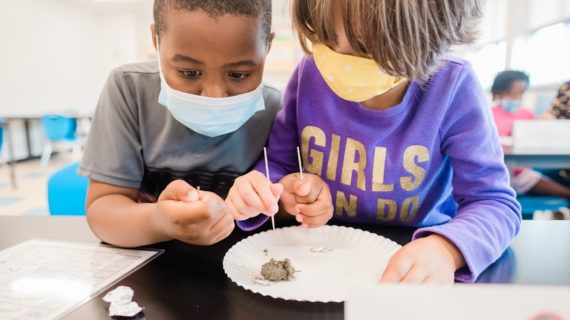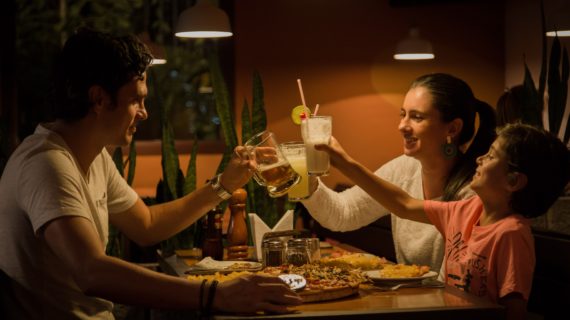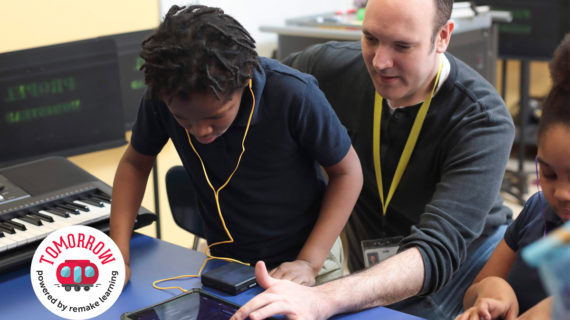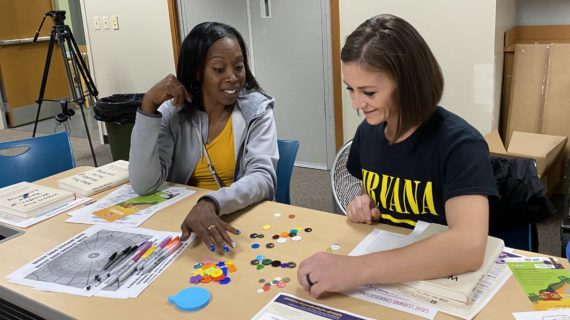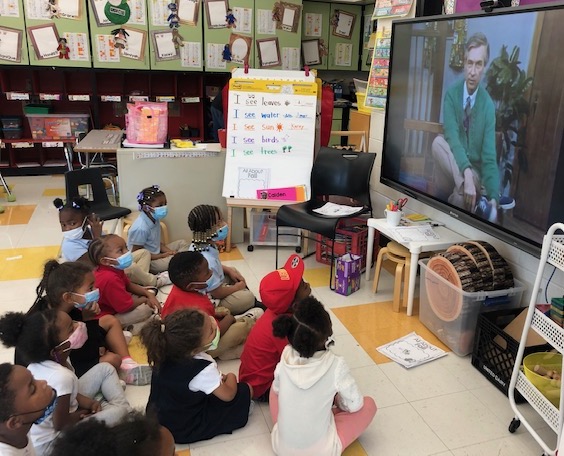
Kindness in the Neighborhood: Educators around the world are bringing Mister Rogers’ wisdom into their daily work
This guest essay was written by Sarah O’Callaghan and Cynthia DeMaio, graduate assistants at the Fred Rogers Center for Early Learning and Children’s Media at Saint Vincent College. Photo above courtesy of the Fred Rogers Center.
Throughout the past 18 months, we have all experienced many changes and challenges due to the COVID-19 pandemic. It is sometimes difficult to know what will happen next and how we can move forward from here. At the Fred Rogers Center, we have found hope through our work with educators who share and show kindness and empathy in their daily work of caring for children, youth, families, and one another.
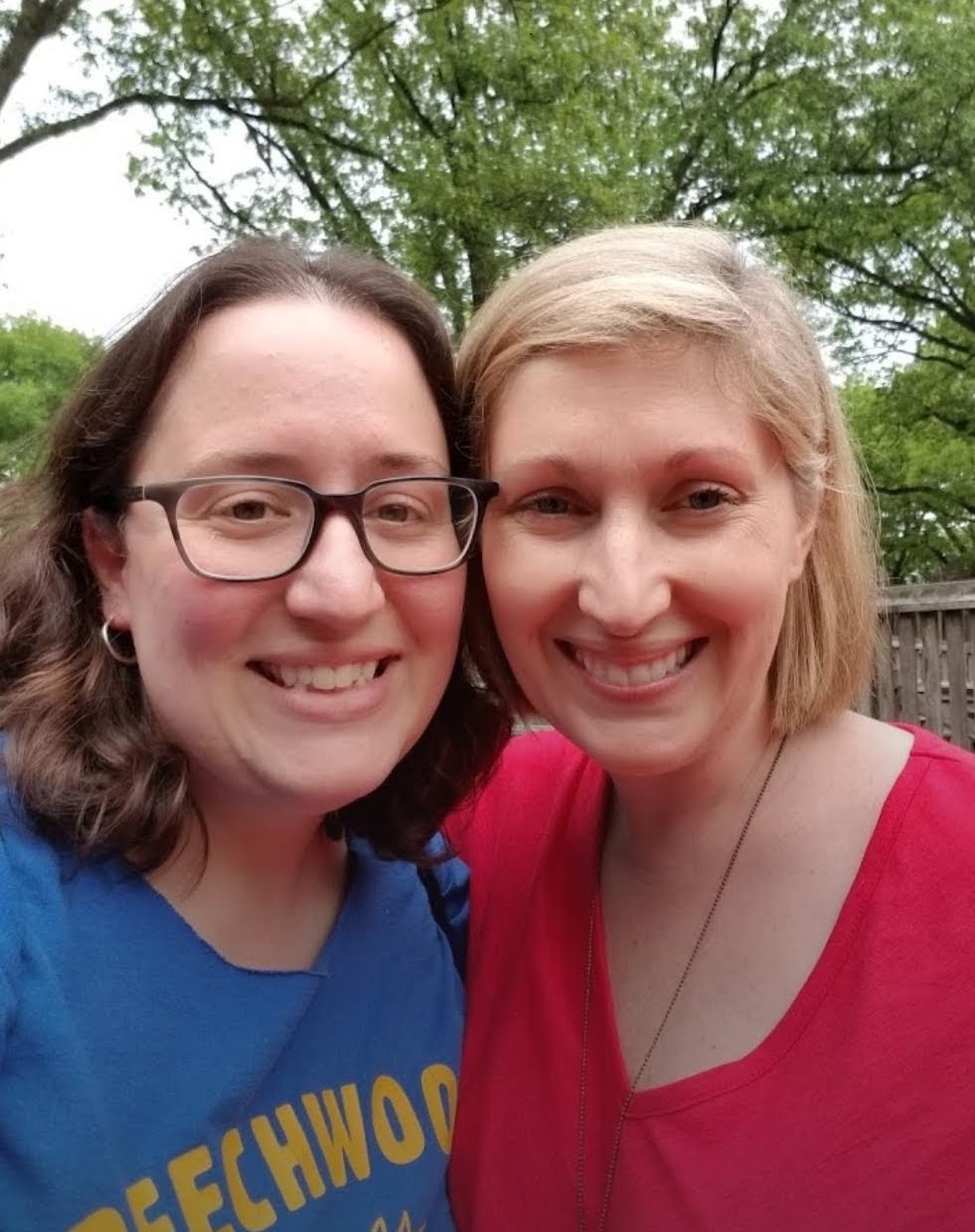
Educators’ Neighborhood, an initiative at the Fred Rogers Center, is a community of educators from around the world that supports one another to intentionally integrate Fred Rogers’ messages into their everyday practice. During group discussions, educators from diverse settings — including K-12 classrooms, libraries, community-based organizations, and more — share themes of Fred Rogers’ legacy that they notice in their work. The importance of kindness is one theme that we have heard about so much during the past year and a half. Educators are finding and creating ways to extend the messages of kindness that they read from the Fred Rogers Archive, watch on “Mister Rogers’ Neighborhood” and discuss in the community of practice.
Two Educators’ Neighborhood participants and current kindergarten teachers, LeeAnne Kreuger and Renata Capozzoli, embody this work of applying Fred Rogers’ messages of kindness to their everyday lives. LeeAnne and Renata have been involved with Educators’ Neighborhood for three years. As part of this community, they have shared “Mister Rogers’ Neighborhood” episodes with their classes, connected with other educators across the country, and reflected on their everyday practice.
At the beginning of this school year, we had a conversation with LeeAnne and Renata about what kindness means to them as educators. They shared that kindness drives everything and they strive to foster kindness through building relationships with others. Connecting with others in the Educators’ Neighborhood has also encouraged them to practice kindness toward themselves in allowing themselves grace, understanding that doing the best they can will always be enough.
Like many educators in Educators’ Neighborhood, LeeAnne and Renata have also translated Fred Rogers’ message of kindness into their daily work. LeeAnne and Renata shared how they encourage students to express kindness in multiple ways throughout the day, and they model examples of kindness for the students to use in their own lives. For example, LeeAnne highlights positive actions of students that she observes and shares these with her whole class so that other students can practice kindness as well.
Renata similarly models kind behavior for her students in the classroom and during free time and recess. If she observes students disagreeing in some way, whether they are finding it hard to share or work together, Renata pauses the class and has students decide what should be done next to resolve the problem, such as communicating or apologizing. She discusses examples of kindness she observes in her classroom, and brainstorms with her students on other expressions of kindness.
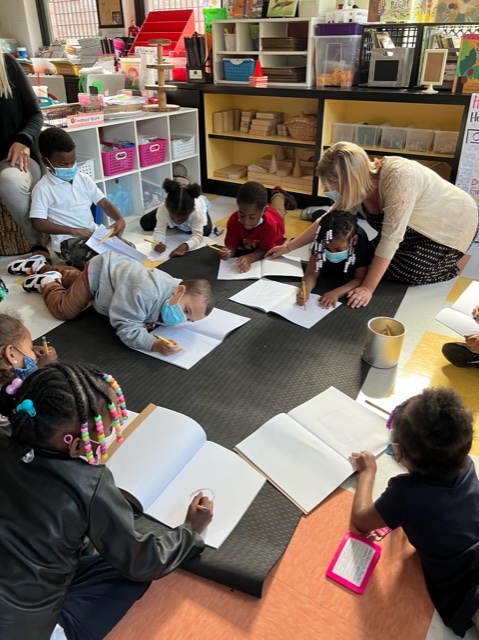
In thinking about encouraging students to practice kindness, LeeAnne and Renata reflected on how kindness could be practiced in life outside of the classroom. LeeAnne states, “What you give is what you get. If you give kindness, kindness will be returned to you.” She also shared that kindness is a universal language for all students and there are multiple forms of kindness, and in various settings.
Renata agreed, and considered the golden rule: treat others as you want to be treated. Kindness shapes and forms our relationships with others. When kindness is reciprocated, it can make the receiver and the giver feel appreciated and worthy. “It comes from the ways you live,” Renata continued with her explanation of kindness in life, “If you want to have a happy and positive life and form relationships with others, then be kind.”
Our conversation with LeeAnne and Renata concluded with the beliefs, ideals, and practices of Fred Rogers and how he has impacted their views of kindness. Renata remembered that prior to being involved in Educator’s Neighborhood, the rewards she gave her students had been focused on material items. She said, “I don’t do that anymore because the kindness, the words, the emotions are enough – that understanding has come from Fred Rogers. The material should be from within. Kindness should come from within.”
LeeAnne extended the conversation by including what she learned from Fred Rogers and how he continues to impact her views and practices of kindness. She shared, “I make sure I slow down and don’t just react to situations. I stop and think about the way I speak to children. It’s easy to say the negatives; ‘don’t do this’, or ‘do this’, but slowing down and taking time to build the relationships we have with each other and helping address certain things in a kinder way is from Fred.”
We have so much to learn from educators, like LeeAnne and Renata, who work with children, youth, and families every day. During the challenges and changes that we all may experience, we can remember what Fred Rogers once said: “There are three ways to ultimate success: The first way is to be kind. The second way is to be kind. The third way is to be kind.”
